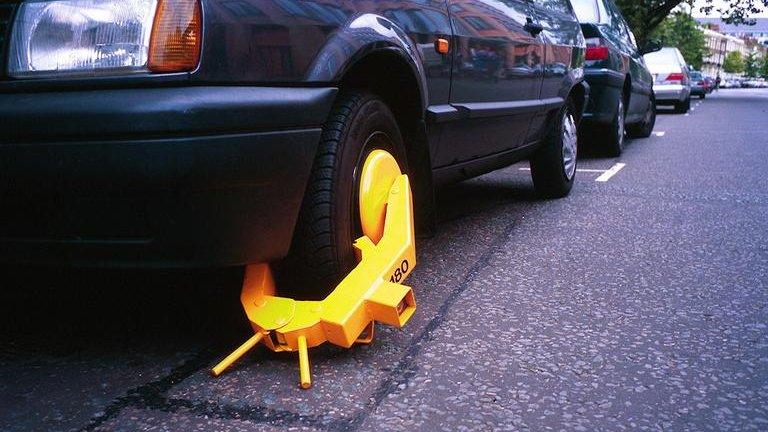Private parking charges: Your rights
- Published
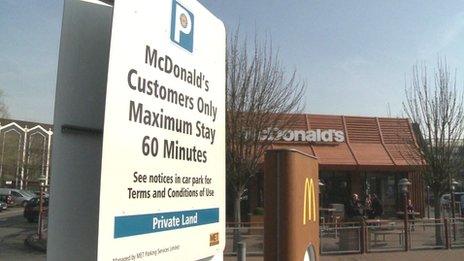
The branch of McDonald's in West London where Mr Bhatia was charged £100
Moez Bhatia received a nasty surprise in the post last month - a parking ticket for leaving his car for more than an hour at a McDonald's car park.
Mr Bhatia was not just shocked by the amount that was being asked for, £100, but because he thought he had done everything possible to avoid getting stung.
"I saw the restriction there. As I was definitely going to be there for more than 60 minutes, I asked the staff if I could park the car for more than 60 minutes.
"And the staff said, 'Yes, you can park it'. Had they declined my request, I would have gone back to the car and driven off," he told the BBC.
In the majority of cases, the car parks are run by a third-party company. This was true for Mr Bhatia as well. He immediately contacted McDonald's, which advised him to contact the operator concerned, MET Parking.
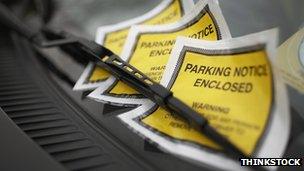
Most people do not bother to appeal
So what are your rights should you find yourself dealing with a private parking operator?
Appeal procedure
Mr Bhatia is not alone. Around 1.8 million parking charge notices are issued to motorists who have been deemed to be parked illegally on private land.
But when it comes to fighting such charges, he is in the minority. Only 13,415 go through the official appeal procedures.
The body that oversees the way private car parks are run, the British Parking Association, believes that the appeals process is fair and relatively easy to navigate. It points out that almost half of all appeals find in favour of the motorist.
BPA chief executive Patrick Troy says private car parking companies are considerate.
"One of the things we've done is to establish an independent appeals service with independent redress for motorists," he says.
"That's a really important benefit for motorists, to protect their interests when they get tickets in those circumstances."
This appeal service is free and run by an organisation called Parking on Private Land Appeals (Popla).
Mr Troy would like all private car park operators to use it. Currently, many car parks at railway stations and airports do not use Popla and so motorists cannot use its appeal service.
Your rights
Wheel-clamping on private land in England and Wales has been illegal since October 2012.
In Scotland, clamping on private land has been banned since 1992. Northern Ireland has a code of practice.
Parking control companies are legally allowed to pursue motorists for any unpaid parking charge notices.
However, parking enforcement on private land is unregulated and it relies on the laws of contract and trespass.
Motorists are deemed to have accepted the parking terms and sanctions if there is adequate signage.
Several organisations, including the AA, have campaigned for private parking to be regulated, but this has not happened.
Operators are also within their rights to send you a ticket through the post.
The AA advises motorists not to pay any money on the spot.
All bona fide operators will allow you to pay by post.
If you disagree with the ticket, the AA suggests you should gather any evidence, such as photographs.
You should then follow the instructions on the ticket concerning the appeals procedure.
Campaigner and author of the book, "The Parking Ticket Awards: Crazy Councils, Meter Madness and Traffic Warden Hell", Barrie Segal, is not convinced that the industry is fair to motorists.
He also does not believe we should ignore these tickets, but at the same time doesn't believe POPLA's appeal service is the only route to follow.
His advice is to get your case heard and not get bogged down in a stream of continuous letter writing.
Mr Segal says this is what you should tell the parking company:
"I want my day in court, if you're going to pursue this. If you go to court, I want you to demonstrate:
1) There was a contract
2) That you're entitled to receive the money
3) That it isn't a penalty and
4) That what you've asked for is a genuine pre-estimated loss"
Apology
McDonald's told the BBC that it does not profit from operations run by MET Parking.
But it did say that it had to impose parking restrictions because of mini-cab drivers using its car parks as waiting bays.
It also said that some motorists have left their cars outside MacDonald's while using nearby airports or shopping centres.
"In each of our restaurants where parking restrictions have been introduced, we work with industry-approved contractors to make the parking policy as fair and as clearly communicated as possible," a spokesperson said.
However, after being contacted by the BBC, McDonald's did issue an apology and cancelled Mr Bhatia's parking charge.
Others may not be quite so fortunate.
- Published10 January 2014
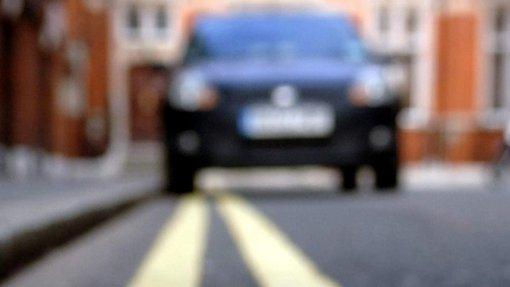
- Published27 January 2014
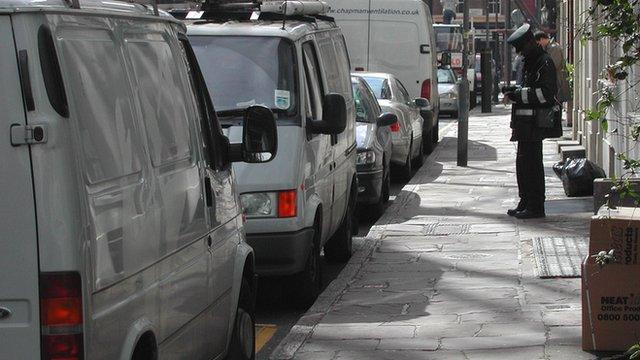
- Published16 January 2014
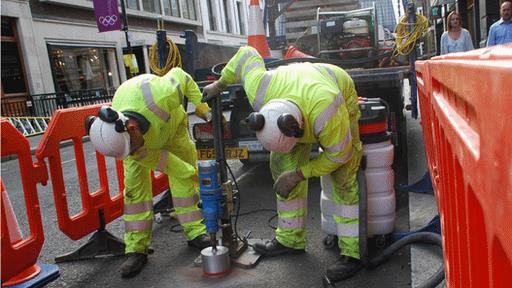
- Published1 October 2012
